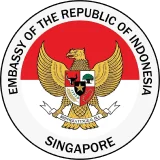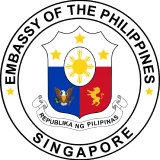Frequently Asked Questions
Browse through a list of FAQs below.
Costs
The migrant domestic worker’s (MDW) levy is a fee that is paid by employers in Singapore to the government for each foreign domestic worker (FDW) that they hire.
There are two levels of levy:
1) $300 per month for the first FDW
2) $450 per month for each additional FDW.
The levy must be paid by the employer through a GIRO payment at the end of each month, and failure to maintain a valid GIRO account can result in the cancellation of the FDW’s work permit.
The levy begins on the fifth day of the FDW’s arrival for a first-time FDW, or the next day of arrival for a returning FDW.
Employers have up to 17 days after the end of the month to make the levy payment, with the deduction being made on the next working day if the 17th is a non-working day.
There are several circumstances in which employers in Singapore may be eligible for a subsidised levy for their foreign domestic worker (FDW):
1) FDW is engaged to care for an elderly person (at least 67 years old)
2) A person with disabilities
3) A child under the age of 16.
In this case, the subsidized levy is $60 per month. Please note that levy concessions are capped at 2 helpers per household, and each levy for each helper is based on one eligible person in the household.
There are also circumstances in which employers may be able to waive the FDW levy altogether:
1) FDW is on overseas leave for at least 7 consecutive days (capped at 60 calendar days per calendar year)
2) FDW is on hospitalization leave issued by Singapore hospitals (capped at 60 calendar days per calendar year)
3) FDW does not return to Singapore after overseas leave
4) FDW is under police custody or is housed at the embassy
5) FDW has passed away.
Yes.
Under Singaporean law, there are certain circumstances in which a woman may be eligible for separate assessment for the purposes of calculating her tax liability. These circumstances include:
1) Being a married woman who has been elected for separate assessment
2) Being married with a non-resident husband
3) Being separated, divorced, or widowed and living with an unmarried child for whom the woman can claim child relief.
If any of these circumstances apply to you, you may be eligible for separate assessment. Please note that this information is general in nature and does not constitute legal advice. If you have specific questions about your tax liability or eligibility for separate assessment, you should consult with a qualified tax professional.
As an employer of a foreign domestic worker (FDW) in Singapore, you are responsible for covering all expenses related to your FDW’s employment, including medical care. This includes the cost of hospitalization, and you are not allowed to pass these costs on to your FDW.
It is important to be prepared for medical expenses, as they can be unpredictable. One way to ensure that you are prepared is to purchase a comprehensive insurance plan for your FDW that provides a high level of medical coverage.
You may also wish to consider upgrading your insurance plan to get an even higher level of medical coverage. It is important to carefully review the terms and conditions of any insurance plan that you are considering to ensure that it meets your needs and those of your FDW.
Situations
There are several options available to foreign domestic workers (FDWs) in Singapore who want to send money back home on a regular basis.
Many banks and remittance service providers offer remittance services that can assist FDWs with sending money to their home countries. FDWs are advised to avoid congregating in large groups when running errands, including when sending money home, and to return home immediately after completing their errands.
If FDWs are unable to get an appointment to send money in person at a bank or remittance outlet, they may be able to use e-remittance options or visit a remittance agent at another location.
It is important for FDWs to carefully consider their options and choose a remittance method that is convenient, reliable, and cost-effective.
1. Try contacting your maid
If you are an employer in Singapore and you are unable to locate your foreign domestic worker (FDW), it is important to take steps to try to find her before reaching any conclusions about her whereabouts.
One thing you can do is search your neighborhood to see if she has wandered out without letting anyone know. It is not uncommon for FDWs to step out for short periods of time without informing their employers, and this can sometimes lead to unnecessary anxiety or negative emotions.
If you are unable to locate your FDW after searching your neighborhood, you may want to consider reaching out to her friends or colleagues to see if they have any information about her whereabouts.
If you are still unable to locate your FDW and you are concerned for her safety, you may wish to contact the police for assistance.
2. Check if her belongings are still around
Check to see if she has taken her personal belongings, including her passport, with her. If these items are no longer present in her room, it is possible that she may have run away.
3. Inform your maid agency
Contact your Singapore maid agency to let them know that your FDW is missing and to ask for their assistance to try locate her. The agency may be able to keep a lookout for your FDW in case she returns to the agency, and they may also be able to contact the FDW’s training center or her family members to see if she has left any messages about her whereabouts.
4. Filling a police report
It is important to file a police report after you have made reasonable efforts to locate her. The police will be able to investigate your FDW’s disappearance and try to determine her whereabouts by contacting relevant embassies, shelters, hospitals, and other organizations to see if she has been in touch with any of these entities.
Filing a police report is an important step to take if you are worried about your FDW’s safety, as it will allow the authorities to take appropriate action to try to locate her.
5. Cancelling her work permit
You can cancel her work permit after a few days of trying to locate her. To do this, you will need to contact the Ministry of Manpower (MOM) and provide them with information about your FDW’s disappearance. If you cancel your FDW’s work permit, your levy payments for her will cease and she will become an overstayer, which means that she will be in violation of Singapore’s immigration laws. Overstayers can be prosecuted for their offense, which may result in a fine, jail time, or both before they are repatriated to their home country.
Under the regulations of the Ministry of Manpower (MOM) in Singapore, foreign domestic workers (FDWs) are not allowed to become pregnant or give birth in Singapore unless they are married to Singapore citizens or permanent residents and have obtained permission from the government to do so.
If an FDW becomes pregnant, her employer is required to inform MOM and terminate the FDW’s contract as soon as the pregnancy is discovered.
To do this, the employer must use MOM’s web portal to inform the Work Pass Division of the FDW’s pregnancy, and must provide:
1) FDW’s name
2) Work permit number
3) Doctor’s letter or medical memo confirming the pregnancy
4) citizenship of the FDW’s spouse (if applicable).
After the employer has informed MOM of the FDW’s pregnancy, the FDW’s work permit must be cancelled and the employer must purchase a ticket for the FDW to be repatriated to her home country.
Employers who fail to follow these procedures may risk forfeiting their $5,000 security deposit.
If you are having problems with your foreign domestic worker (FDW) in Singapore and you are looking for assistance with mediation or counseling, do contact us at +6590049799.
We will carry out the necessary assistance to support in such situation.
Regulations and Process
Once you have selected your domestic helper, the process of obtaining her passport and work permit usually takes about 10 days.
The Ministry of Manpower will take about a week to approve the work permit.
Once the approval is granted, we will make the necessary arrangements for her to fly in, and then she will proceed with the medical check-up and Settling In Program (if this is her first time working in Singapore).
At Human Dynamics, we provide comprehensive services to make the hiring process easy and stress-free. We are also able to bring in a new domestic helper from their home country in about 10 days, which is faster than many other agencies who typically take about a month. Additionally, we conduct pre-interviews to filter out candidates who are unlikely to meet your requirements, saving you time and effort in the selection process.
All domestic helpers are entitled to a weekly day off, but employers may choose to compensate them with a day pay.
The formula to calculate the compensation for each rest day is the basic salary divided by 26.
It is worth noting that starting January 1, 2023, employers must provide the maid one rest day per month that cannot be compensated with money
This is to ensure that the helper has enough time to rest and recharge for their work.
The Settling-In-Programme (SIP) is a one-day program designed to educate first-time domestic helpers working and living in Singapore. The maids are required to attend the program within 7 days of their arrival, excluding Sundays and public holidays. The program includes five modules:
- Introduction to Singapore
- Employment conditions
- Safety in the home
- Safety in other areas
- Relationship and stress management.
The SIP is also conducted in the helper’s native language to ensure that they understand and retain the information learned.
Others
Transfer maids are domestic helpers who are already in Singapore and working for other employers, but are looking for a new employer. They may have completed their 2-year contract or had their contract terminated by either party for various reasons.
1) Indonesia
2) Myanmar
3) Philippines
Anyone holding a valid NRIC, Employment or Work Pass is eligible to apply, including:
- Singapore citizens
- Permanent residents
- Expatriates with valid employment or work pass.
Please note that the final decision is subject to approval by the Ministry of Manpower (MOM) and includes an evaluation of the reason for hiring a domestic helper.
In addition, you must also meet the following criteria:
- Be 21 years of age or older
- Not be an undischarged bankrupt
- Have the mental capacity to fully understand and fulfill your responsibilities as an employer.
MOM will also evaluate your financial ability to hire, maintain and provide suitable accommodation for the maid.



